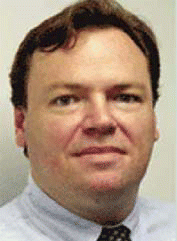The Making of a Physician–Scientist
Fortunately, many defining examples exist of successful surgeon–scientists translating their basic science research into clinically applicable concepts and practice. One such individual is Cherie-Ann Nathan, MD, Professor and Vice-Chairman of Otolaryngology/HNS at Louisiana State University Health Sciences Center–Shreveport and Director of Head and Neck Surgical Oncology at Feist-Weiller Cancer Center. Dr. Nathan has researched and published extensively on characterization of surgical margins through the molecular analysis of the eIF4E proto-oncogene. Dr. Nathan offers the following insights for developing a bona fide physician–scientist career: “Collaborations with basic scientists are the key. They love clinicians, as we understand the disease and they want our patient samples. However, if they do not see our commitment, they lose enthusiasm.”
Explore This Issue
November 2007Unfortunately, the realities of modern medicine in general, and academic medicine in particular, dictate that the earnest physician–scientist must be willing to negotiate up front with his or her institution in order to secure the proper financial and philosophical support combined with necessary release time to concentrate on his or her projects. Dr. Nathan opines, “The first five years of one’s academic career are most important in developing a research program. The institution should make a commitment toward paid protected time for a physician–scientist for the first five years. Salary should not suffer because of decreased clinical load. After five years, if funding is not obtained, then one can expect faculty to bring in their share clinically.”
This model seems to be the de facto approach that many institutions are employing with their young faculty, who they project will be successful at establishing their careers combining research with clinical interests.
Physician–Scientists in Otolaryngology–Head and Neck Surgery
In our specialty, we are fortunate to have bright individuals who have upheld the surgeon-scientist model. The greatness of our specialty is the commitment of our members who have willingly waded into the often thankless and unrecognized path of academic educators and innovators seeking excellence in their pursuits. As a specialty we have numerous subspecialties that lend themselves to meaningful research that can be combined with clinical satisfaction. Our neurotologists, head and neck surgeons, rhinologists, laryngologists, pediatric otolaryngologists, and plastic and reconstructive surgeons have made substantial contributions to their subspecialty fields. These contributions have come neither easily nor without a price.
For many physician–scientists, the “payoff” for their time and investment comes with attainment of the signature honor of investigator independence, the NIH R01 award. However, that measure of success is not easily or equitably reached by every physician–scientist. In a recent article in the Journal of the American Medical Association, Dickler et al. performed a comprehensive analysis that documented the experience of first-time investigators with a medical degree over a 40-year period.2 Their objective was to ascertain the perseverance and comparative success of physician–scientists for independent investigator NIH awards (i.e., R01 awards). They determined that the annual number of first-time investigators with an MD only who applied for NIH R01 grants remained stable over four decades. The first-time applicants with an MD degree only were less successful than those holding PhD or combined MD/PhD degrees by a statistically significant measure. Perhaps more disconcerting was the fact that successful first-time MD grantees were consistently less likely to obtain a subsequent R01 grant. This well-executed study concluded that physician–investigators consistently experienced higher rates of attrition and failure in spite of the original success obtaining an R01. One additional point made was that physicians proposing nonclinical research were more successful than those who submitted clinical projects.

Leave a Reply